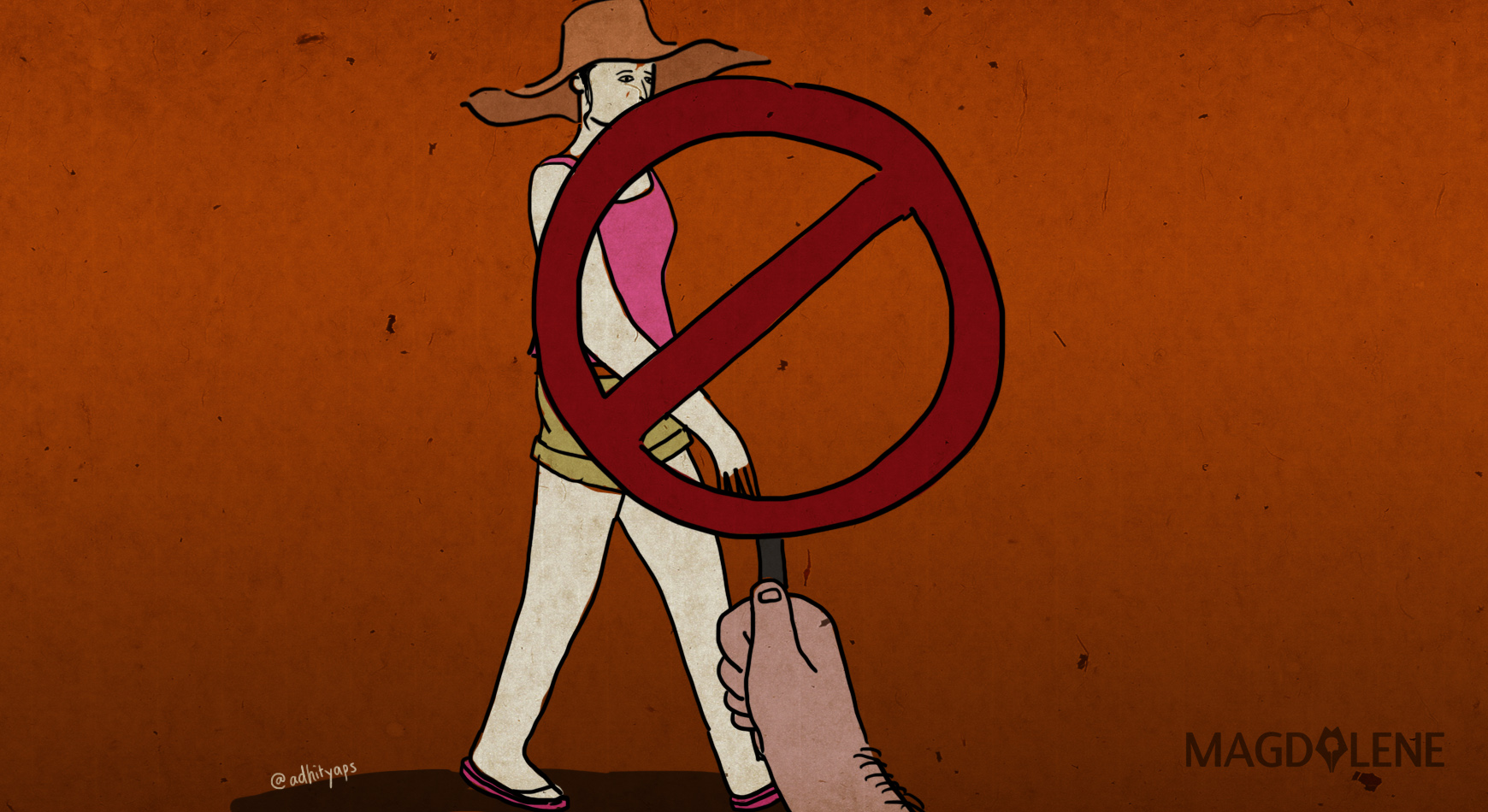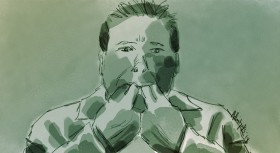“Boobs!” My best friend said half shouting yet still trying to be discreet.
I looked down at my breasts, as if I was surprised they were still in place. I hastily lifted the top of my shirt to cover the line of cleavage that was showing.
I got myself a new top. It’s appropriate for work and it has a high neckline and nice accessories that come along with it. But upon seeing me, a colleague asked, “Don’t you have a shawl with you?” My shoulders were showing.
Before Jakarta, I lived in Bali, Germany, and the Netherlands, places where I dressed weather appropriate. People cared less about other people’s clothing, if at all, probably because they themselves would not like to be dictated on what to or not to wear.
However, since arriving in Jakarta, my routine of picking out clothes has changed. So has my shopping list. I don’t go to the section of the department store where the tank tops are, nor do I go to the shorts section. These items will not fit in my “Jakarta-Appropriate Wardrobe.”
But isn’t that sad? I am an independent woman; I should be able to wear anything I want to wear and not care about what people has to say. I can always argue that my intelligence is much more important than the clothes I wear, and if people want to judge me based on how my pants hugs my curves, they are not worth my time anyway.
The problem is I get these comments also from people who know me well, who (I assume) know that I am not flaunting my body to attract attention and that I simply dress to please my own eyes. Hence, ignoring these comments becomes more of a challenge and my go-to clothes have become those that will leave me with as few comments as possible.
What I realized after multiple conversations is that in this metropole, the way one dresses is conceived as a show of one’s traits or one’s upbringing. An excessive display of skin or cleavage peeking through a V-neck shirt could mean that one is impolite, inconsiderate of one’s environment, reckless about what desires the choice of outfit might provoke.
Consequently, these accusations will develop into questions on how one is brought up: “Did her mother not tell her that she can’t wear that kind of dress?” Or, “How could her parents let her out of the house looking like that?”.
My dear mother–as opinionated as she is–gave me freedom in the choices that I make, including those related to my body and my wardrobe. To question the way she raised me, because of what I just happen to wear on a particular day, is appalling to me.
After roughly 10 months, I have learned to choose my battles wisely. I am aware that as humans, we are just a product of our habits and perceptions, and that we find comfort in familiarity. People in Jakarta are not accustomed to the display of skin, mainly due to the religion that the majority of its people hold. Do I have the power to educate people about freedom of expression, especially regarding clothing? Maybe yes, to those around me but not to the wider society just yet.
So, to make things easier on myself, I buy looser t-shirts with higher necklines, longer pants, and bras with no padding. All in all, as long as I am able to express my thoughts, opinions, and beliefs, I (mostly) don’t mind if I have to wear size 40 pants instead of a 38.







Comments